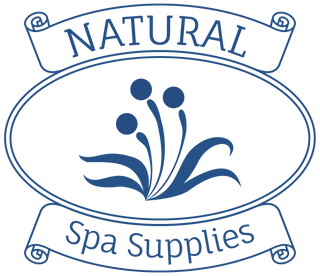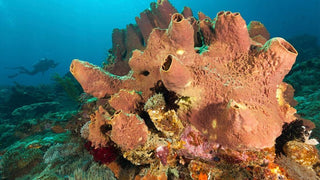Find out more about Sea Sponges
As conscious consumers, it is important that everything we purchase is ethical and sustainable. How ethical and sustainable is it to buy a sea sponge? I asked my Greek sponge suppliers for some updates on the environmental impacts of sponge harvesting recently. I thought you’d like to see their answers.
Humankind have been using sea sponges for many millennia. Their benefits for personal hygiene and cleanliness are unrivalled. At Natural Spa Supplies, we have been supplying ethically sourced sea sponges for nearly fifteen years, purchased from two Greek suppliers.
Each of our Greek sea sponges is skilfully harvested by hand. The divers are very careful when they cut the main body of the sponge leaving enough material behind so that the sponge will regenerate. Small pieces of sponge are also released by the divers - as once these settle, they will grow into new sponges. If you already own a sea sponge, chances are the original live sponge is actually still rooted to the seabed and has more sponge relatives! Sponge divers claim that sponge populations are healthier where collection takes place.
Each of our Greek sea sponges is skilfully harvested by hand. The divers are very careful when they cut the main body of the sponge leaving enough material behind so that the sponge will regenerate. Small pieces of sponge are also released by the divers - as once these settle, they will grow into new sponges. If you already own a sea sponge, chances are the original live sponge is actually still rooted to the seabed and has more sponge relatives! Sponge divers claim that sponge populations are healthier where collection takes place.
The Greek divers are very experienced, they are licensed divers, and understand and follow all of the fishing rules and practices. Beyond that, both of my Greek sponge suppliers and their divers are active marine ecologists. Not only do they help the scientific community understand more about sponges, they activity protect the habitat and health of their sea for all life.
Our Greek sponge suppliers are certain about the traceability of their sponge backed up by invoices. Many sponges – the Yellow Sponge, some Hardhead, Macho Finas and Sea Wool sponges from other locations like Cuba, America and Africa - are illegally poached with insufficient regard for the sustainability of the population. Only when sponges are collected under a closely monitored system such as in Greece, can legal and sustainable collection be assured. At Natural Spa Supplies, all of our sponges have this trail of certification and are legally and responsibly obtained. We wouldn’t have it any other way.
Please exercise care when selecting sponges collected from countries other than Greece – where much illegal and unmonitored sponge fishing takes place with destructive methods of collecting.
We could obtain CITES and veterinary certificates for our Greek sponges, but it is unnecessary: a CITES certificate is only valuable when it helps to regulate endangered species and the species collected in Greece for the consumer market are not protected species. In the 15 years of running Natural Spa Supplies, I have only ever been sent the common commercial species shown on my order. The issuing of a vet certificates would doubly assure that there were no endangered sponge species in the consignment and certify the sponges as fit for consumption or use in pet food - We sell our sponges just for washing and cleaning.
The Greek sponge divers rotate area where they collect sponges from to give time for the sponges to grow up again.
The Greeks are very proud of their marine based economy and their waters have never suffered from over fishing for sponges. It is a different situation in other countries. Currently the levels of sponges harvested in Greek water equate to about half of the levels in the 1930s and the tonnage is closely monitored. When levels do decline (not through over fishing, but through environmental causes or disease) the Greek government prevents further harvesting.
Sea products are vital to Kalymnos, as the land is too rocky to farm, and this fact influences the Greek regard for the health of the sea and all its lifeforms. These islands are dependent on the sea for their economy and respect for the sea runs deep in the Greek psyche. The fishermen really care about the environment and they recycle all of the plastic caught in their nets, helping to reduce plastic pollution in the sea.
At Natural Spa Supplies we only order unbleached Greek Sea Sponges which are darker in colour compared to bleached or synthetic sponges which are yellow. This means that the sea sponges are processed using natural processes rather than acid baths which cause pollution of the soil and water. Unbleached sponges are stronger and last for much longer.
Towards the end of the use life of a sponge, they can often be repurposed – for example from bathing and shower sponges to cleaning, children’s or artist sponges. At the very end of their use life, they can be cut up and composted or buried in the soil to natural biodegrade. Compare this to synthetic sponges, made from polyurethane, which can take 20 years to break down into plastic microfibres which pollute the planet and enter our food chain. Synthetic kitchen sponge scourers contain the added green layer, made from a blend of polyurethane and nylon; this can take 200 years to break down – again into polluting microfibres. Sea sponges represent a planet friendly alternative to synthetic sponges which are made largely from fossil fuels.
Due to ideal and stable water temperatures of the Aegean, Greek sponges grow at the optimal rate, giving a significantly better structure and a longer use life. Beware of cheap sponges which come from the Caribbean, Cuba and the coast off Africa which grow with a looser structure and will deteriorate much more quickly.
Sponges are indicators of the health of sea water and the planet. Many species provide clues to modern medical cures and retaining sponge diversity could be important for human health. This goes for all our wild flora and fauna. With sponges being such create water filters, they could be used in aquaculture in a tiered system to help keep the water of inshore salmon farms lower in pollutants. Sponges are the earliest animals to have evolved and all other animals may have evolved from them.
Sea sponges everywhere are more vulnerable to external threats than illegal collection but much more so from climate change and pollution of the air sea and land.
The general impact of climate change caused by the release of greenhouse gasses such as Co2 (carbon dioxide from the burning of fossil fuels, deforestation, cement production ), CH4 (methane, from the burning of fossil fuels, the decaying of landfill waste,) and N2O, nitrous oxide (caused by combustion engines), PAH, polycyclic aromatic hydrocarbons, (from burning organic matter) and fluorinated gasses caused by air conditioning, refrigerators.
Among the thousands of sponge species in the ocean, many contain skeletons, (not the commercial species used for bathing and washing) and the skeletons get degraded by the increased levels of CO2.
Agricultural run-off due to industrial farming, increases the levels of phosphates which affects the health of sponges and the ability of sponges to survive and thrive. The phosphates attract starfish which predate sponges.
Currently, the coast of Turkey has come under an influx of ‘sea snot’ and mixture of microbes which proliferates to form a sludge which takes oxygen out of the water and alters the other parameters, causing death to fish and other marine life. Unlike fish, which can at least try to swim away, sponges are benthic – that is they can’t easily move around, they are rooted to the sea bed. Sponges are not able to escape pollutants. Why has the sea snot formed? It is because Turkey and other countries release untreated sewerage into the rivers and sea. During 2020 in the UK, our water companies had over 400,000 releases of toxic untreated sewerage in our waters. This is a national disgrace.
Climate change will bring increased precipitation, more adverse weather conditions, ice cap and glacial melting. It is bringing sea level rising and other changes in the parameters of the sea such as salinity, Ph and oxygen levels. With all these factors and a more forceful weather system the sea and sea beds are disturbed; this can cause widespread death of sponges by uprooting them.
The main threat to sponges is in the form of manmade pollution which enters the sea and brings about climate change. Humanity has begun to accept that humans are responsible for this wave of climate change and governments are beginning to take action. I do believe that consumers can lead the way to change – each purchase we make is like a vote and most people feel more comfortable with an ethical and sustainable position.
There are issues around the sustainability of the harvest of medical grade sponges from which anti-inflammatory medicines are made and for which cures for cancer are being sought. Sponges form the basis of some medicines for HIV, and Remdesivir, used to treat Covid is made from sponges. In Wales sponges are collected from rock pools to be used in cancer medicines. The demand could easily put sponge populations at risk. Plus some of these sponges are obtained by trawling. However, medically sought after species could be artificially cultured and the active medicinal components can be synthesised, albeit with lessor profits.
Natural Sea sponges are certainly more ethical than synthetic sponges which can take up to 200 years to breakdown – but then only into plastic microfibres. Where the harvesting of sea sponges is responsibly monitored and controlled – such as in the Greek fisheries - the moderate scale lead by traditional hand harvesting does have a future. With these stringent processes in place, the harvesting of Greek sea sponges for consumer use is sustainable and Greece could accommodate a growth in demand.
Please browse our shop to discover our collection of traditional, personal care and household cleaning products. The most popular products in our eco shop have been revered throughout the ages and have proven to be sustainable in the long term. If you aspire to the eco life, where you leave little or no trace, do take a look at our unbleached Greek sea sponges and value part of nature in your own home.


